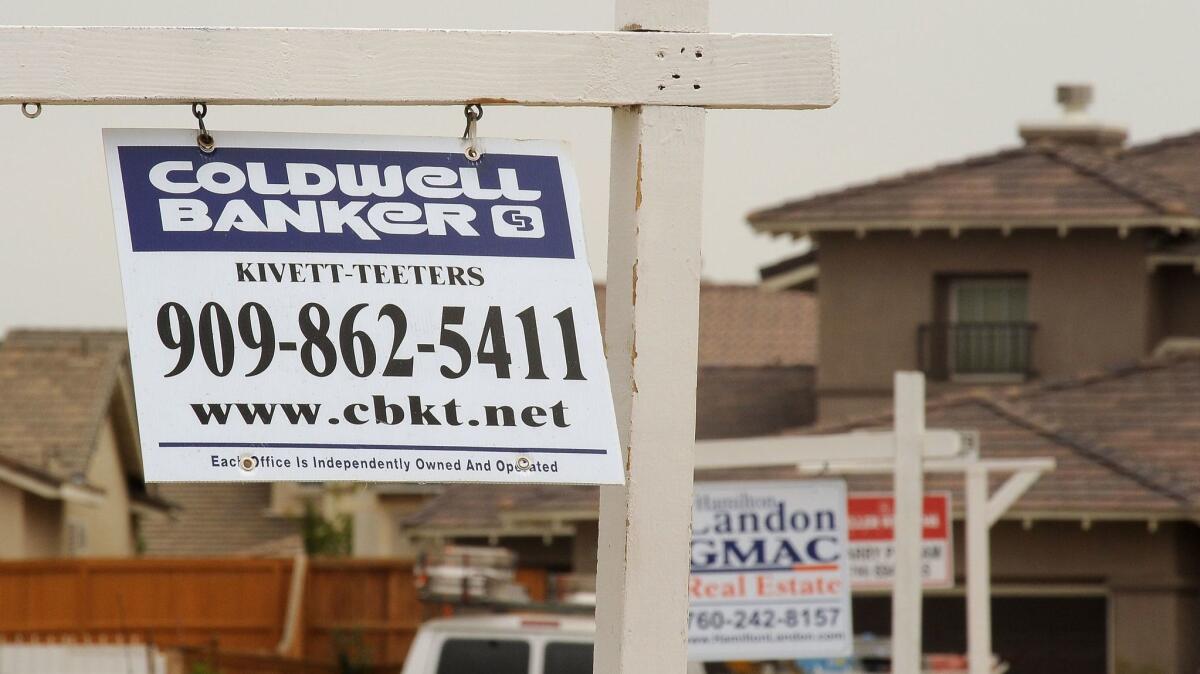Column: Here’s how California lawmakers tried to overrule the courts in the legislative session’s final hours

- Share via
Gov. Jerry Brown is likely to soon sign a bill that attempts to cancel a $331-million court ruling against the state, legislation that looks a lot like two branches of California’s government telling the third to take a hike.
There’s another story here, though, a familiar tale of how state budgets were balanced during the recession years. When tax dollars didn’t stack up high enough to pay the bills, lawmakers tapped special pots of money to make up the difference — the kind of efforts that worked as long as a judge didn’t deem them illegal.
That brings us to a ruling in July that ordered the state must give back its share of a 2012 national settlement with mortgage lenders accused of deceptive business practices and improper home foreclosures. The agreement called for the money to be used on state efforts ranging from home loan “borrower relief” to a panoply of other services for “California homeowners affected by the mortgage/foreclosure crisis.”
But groups that represent low-income and minority homeowners sued in 2014, claiming state officials wrongly spent the money on things unrelated to the mortgage crisis. That included using $292 million, more than 88% of the money, to cover state debt on housing bonds that were approved by voters as far back as 2002.
The plaintiffs insisted that wasn’t the kind of help the settlement was intended to provide. A judge agreed, ordering the state in 2015 to replace the spent dollars. State officials appealed but lost again in July when an appeals court refused to rescind the trial judge’s decision.
California’s Legislature weighed the momentous and minuscule as it wrapped up work for 2018 »
That’s when the Legislature decided to intervene. Democratic lawmakers, with the governor’s support, quickly introduced a bill two weeks ago to scuttle the appellate ruling. Senate Bill 861 received only brief public vetting, even as it made a bold and unusual pronouncement: The California Department of Finance used the $331 million in mortgage settlement money in a manner “consistent with legislative direction.”
The bill went even further, decreeing that the Legislature has the power to officially “abrogate,” or revoke, the appeals court ruling to replenish the money for services related to the mortgage crisis.
“Taking money that would have helped struggling Californians was wrong,” state Sen. Janet Nguyen (R-Garden Grove) said during floor debate Aug. 30. “And passing a bill to try to justify the misuse, after the fact, is also wrong.”
Democrats pointed out, correctly, that homeowners received cash from a $20-billion pot of money divvied up among individuals. The state’s money, they argued, was for government programs to help in other ways.
But the decision to use the money to defray the costs of state services seems at the heart of the ruling against the state. It’s analogous to the parent who, after receiving a cash donation to her child’s college savings account, uses the money to pay credit card charges for last year’s school clothes. The money was supposed to be used for the future, not the past.
Attorneys for the plaintiffs insist the rules for spending the money were dictated by a federal court settlement and weren’t as flexible as the state thought. And they insisted last week their clients’ position isn’t changed by Senate Bill 861, even if Brown signs it into law.
It’s certainly no longer a case about a lack of money — California has had consecutive years of tax windfalls and is on the way to amassing a $13.8-billion cash reserve.
Instead, it’s now about precedent and important questions about the separation of powers. The legislative and executive branches teamed up to undo the current ruling, but the California Supreme Court will hear one final appeal of the case. And the justices will probably have the last word.
Twitter: @johnmyers
More to Read
Get the L.A. Times Politics newsletter
Deeply reported insights into legislation, politics and policy from Sacramento, Washington and beyond. In your inbox twice per week.
You may occasionally receive promotional content from the Los Angeles Times.











